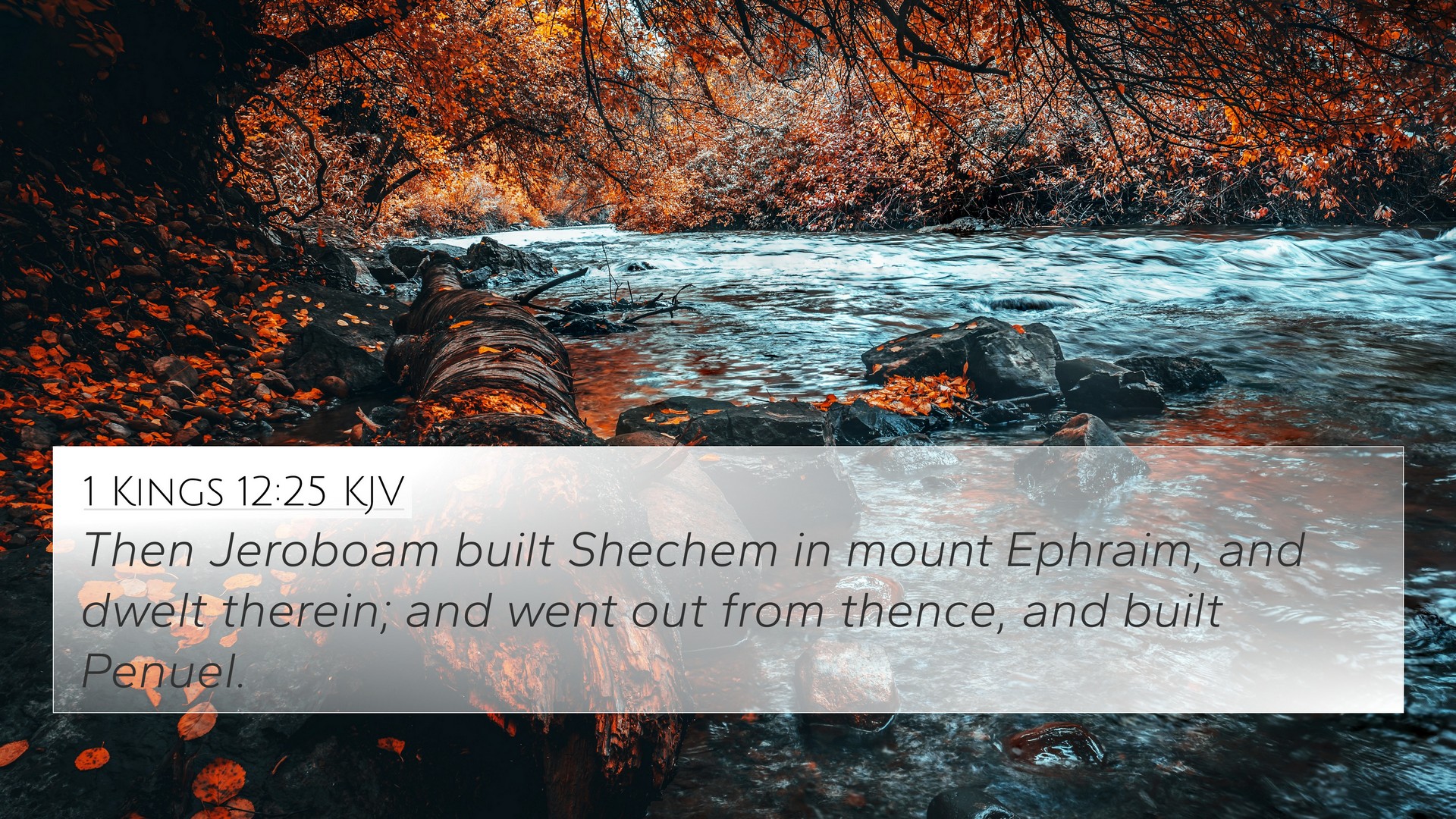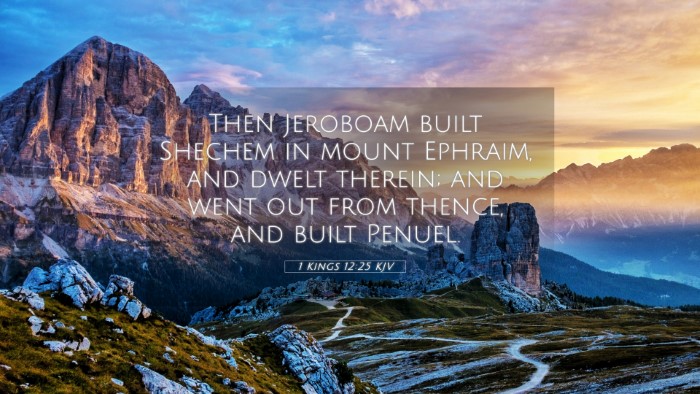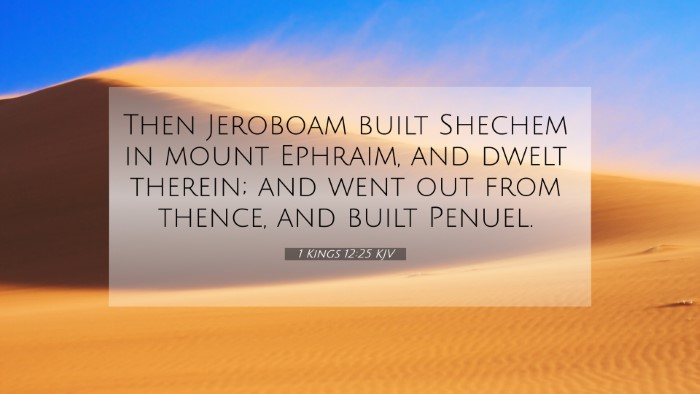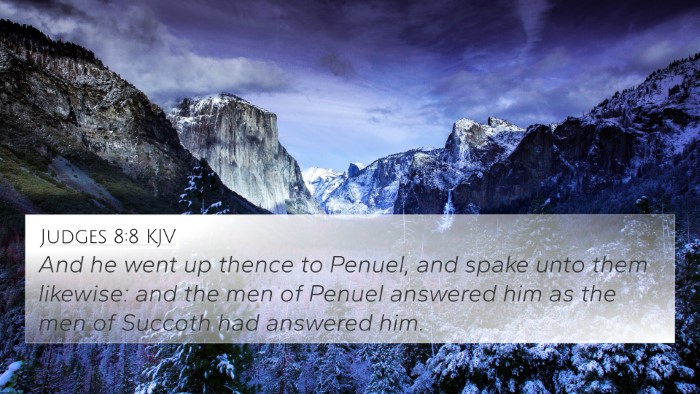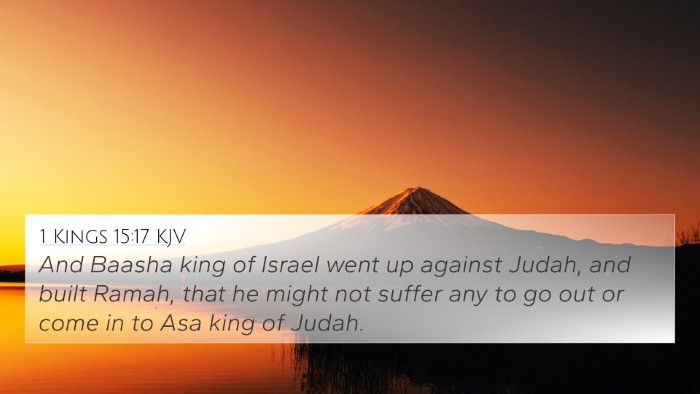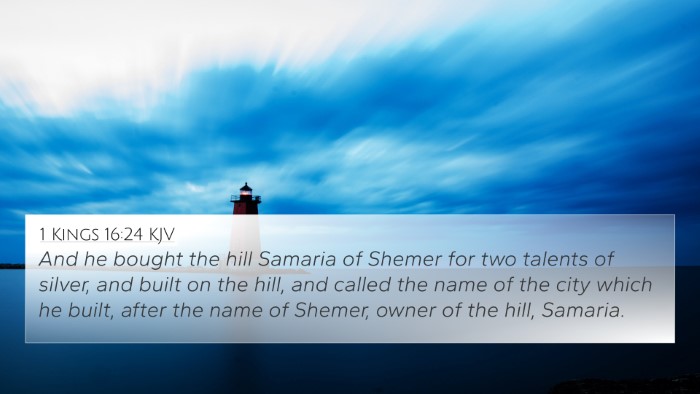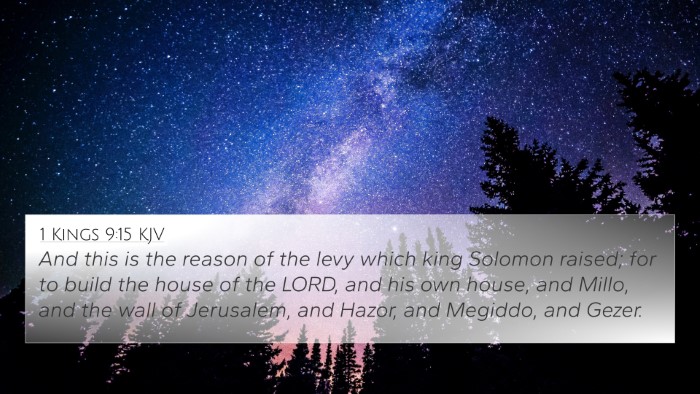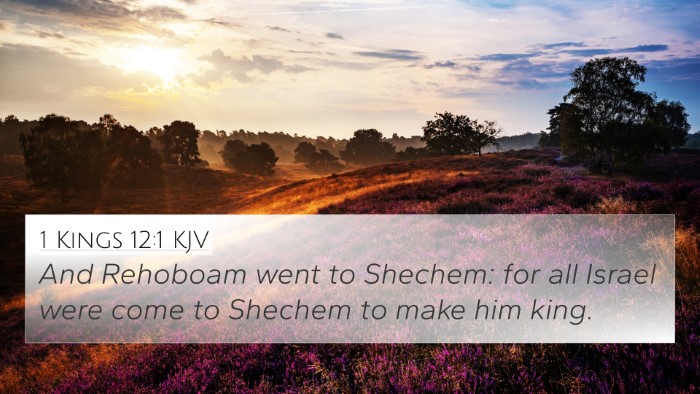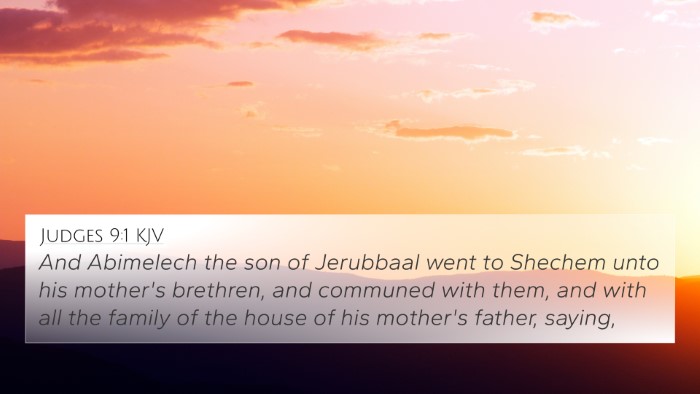Meaning of 1 Kings 12:25
The verse states, “Then Jeroboam built Shechem in mount Ephraim, and dwelt therein; and went out from thence, and built Penuel.”
This passage marks a significant moment in Israel's history, addressing Jeroboam's actions following the division of the kingdom after Solomon's reign.
Contextual Overview
Jeroboam, once a servant of Solomon, rises to the forefront as a leader of the northern tribes after Solomon’s death.
His decision to build cities such as Shechem and Penuel holds profound political and spiritual implications for Israel and its future.
-
Historical Significance:
The establishment of Shechem positions Jeroboam within a historically significant site revered for its deep roots in Israel’s heritage,
directly linking this action to the identity of the tribes of Israel.
-
Spiritual Implications:
By building idolatrous altars, Jeroboam deviates from true worship, leading to spiritual apostasy, which is a recurrent theme
in the history of Israel.
Commentary Insights
Matthew Henry suggests that Jeroboam's choice to establish himself in Shechem indicates his intention to
consolidate power and create a new center of governance, reflecting a shift away from the Davidic lineage.
Albert Barnes emphasizes the political calculations of Jeroboam, who strategically chose locations that were
significant to the northern tribes to secure their loyalty. His decisions are seen as attempts to consolidate his rule.
Adam Clarke highlights the importance of locations mentioned, noting that Shechem, being a city of refuge and a previous
religious hub, serves as a critical backdrop to Jeroboam’s leadership. It symbolizes both a political pivot and a shift toward
a new religious framework for the northern kingdom.
Thematic Connections
This event in 1 Kings 12:25 connects to other key biblical themes, especially regarding leadership, idolatry, and the consequences of turning
away from God's commandments.
- Divided Kingdom (1 Kings 12:16-20): These verses introduce the context of Israel’s division and set the stage for Jeroboam's leadership.
- Idolatry and Apostasy (1 Kings 12:28-30): Jeroboam's later actions set the groundwork for Israel's long-term decline due to idolatry.
- Judgment on Israel (Amos 7:9): This reflects the consequences of Jeroboam’s decisions as a prophetic warning against the idolatry he initiated.
- God’s Sovereignty (Isaiah 10:5-7): Emphasizes the broader theme of God’s control over nations and leaders, a recurrent motif throughout scripture.
- Leadership and Responsibility (James 3:1): Highlights the heightened accountability of leaders, relating to Jeroboam's serious missteps.
Cross-Referencing Biblical Texts
Understanding 1 Kings 12:25 through scriptural cross-referencing allows deeper insights into its implications.
Notable references include:
- 1 Kings 11:30-31: The prophecy given to Jeroboam regarding his future rule.
- 2 Chronicles 10:1-2: A parallel account of the circumstances surrounding Jeroboam's rise to leadership.
- Hosea 8:4: A condemnation of Israel's kings and their deviation from God's ways, indirectly referencing Jeroboam.
- Matthew 12:30: The New Testament reflection on division, akin to the divided kingdom of Israel.
- Malachi 1:14: Reminds of God’s emphasis on proper worship and the consequences of forsaking Him.
Conclusion
In conclusion, 1 Kings 12:25 serves as a theological and historical pivot point in understanding Israel's transition,
where leadership choices lead to profound consequences, a theme that resonates throughout the entirety of Scripture.
For those seeking a deeper comprehension of this verse, utilizing tools for Bible cross-referencing can enhance one's study,
drawing connections between various biblical themes and motifs.
